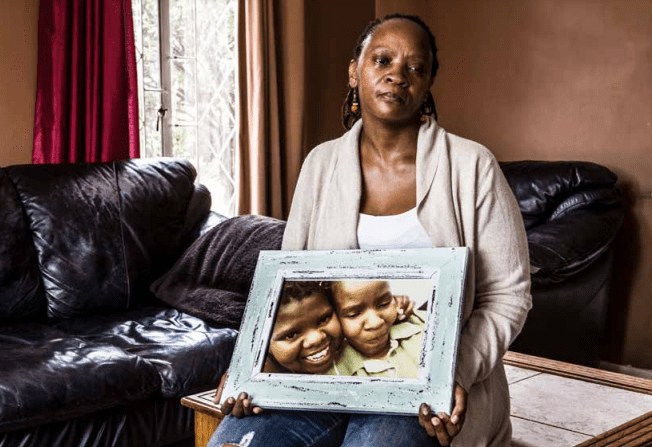Govt to subsidise insurance for smallholder farmers
Business Reporter SMALLHOLDER farmers, who play an integral role in local agriculture, have traditionally relied on rain-fed agriculture. However, as climate change takes its toll, the farmers are now exposed to unreliable rainfall patterns and dry weather conditions. In the 2023-24 agricultural season, the greater part of Southern Africa, including Zimbabwe, was affected by the […]


Business Reporter
SMALLHOLDER farmers, who play an integral role in local agriculture, have traditionally relied on rain-fed agriculture.
However, as climate change takes its toll, the farmers are now exposed to unreliable rainfall patterns and dry weather conditions. In the 2023-24 agricultural season, the greater part of Southern Africa, including Zimbabwe, was affected by the El Niño-induced drought.
As a result, crops failed and the Government had to declare a State of Disaster.
Three years ago, the Government, Insurance and Pensions Commission (IPEC), International Finance Corporation (IFC), FSD Africa, the Access to Insurance Initiative and the insurance industry were already exploring ways to advance the agricultural index insurance agenda.
The agricultural index insurance objective is to protect Zimbabwe’s smallholder farmers from climate-related risks and build resilience, ensuring food security and contributing to overall economic stability.
As part of ongoing efforts to secure smallholder agriculture, the Government, IPEC and insurance companies developed an agricultural insurance index product — dubbed the Farmers’ Basket — to protect smallholder farmers against early and late dry spells, among other risks.
A pilot project ran in the 2023-2024 agricultural season (November 15 to December 31, 2023) and ended at harvest (March 15, 2024). About 4 014 smallholder farmers from 21 wards in Goromonzi district, Mashonaland East province, initially registered to participate in the pilot phase, but only 1 800 farmers paid the requisite premiums of US$15 and received their payouts of US$65 on Wednesday last week.
The Government now believes the success of the weather-indexed agriculture insurance pilot project in Goromonzi demonstrates the potential for scaling up the project across the country.
Speaking at the payout ceremony, Finance, Economic Development and Investment Promotion Minister Professor Mthuli Ncube said the Government was ready to subsidise insurance premiums for smallholder farmers.
He said the subsidy will help make agricultural insurance more accessible, ensuring that more farmers can benefit from these innovative risk mitigation products.
“We participated in this pilot programme of providing insurance at the farmer household level; it went very well, and the farmers today received a payout of US$65 each out of the insurance premium that they paid,” he said.
“But, going forward, we are going to spread this programme right across the country, making sure that insurance at the farmer level is also part of the inputs that we provide. But of course, we will do it on a subsidised kind of approach, where the farmer contributes something and the Government also contributes. So, the insurance premium will be subsidised.”
According to the Insurance Council of Zimbabwe, which formed a consortium of short-term insurance companies to insure the farmers, given that the Farmers’ Basket has a combination of both weather index and area yield insurance, payouts can be triggered by a combination of both.
Under weather index insurance, participating farmers are paid if they experience early and/or late dry spells.
The basis of weather monitoring is mainly satellite data.
On the other hand, for area yield, participating farmers are paid if the average yield (from a crop cutting experiment) in the area is below the normal yield, as specified by a yield trigger level.
Improved insurance product
IPEC board chairperson Mr Albert Nduna said insurers should build on the pilot to come up with an improved product for the 2024-25 season.
“Three years ago, IPEC successfully applied to the Access to Insurance Initiative (a2ii) for the inclusion of Zimbabwe in the Inclusive Insurance Innovation Lab 3 in 2021, given Zimbabwe’s vulnerability to climate-related risks,” he said.
“Part of the project scope entailed IPEC putting together a country team comprising representatives from Government, particularly Ministries of Finance and Agriculture; the Insurance Council of Zimbabwe; the Insurance Brokers Association of Zimbabwe; farmers’ associations and developmental partners to come up with insurance solutions to mitigate the effects of climate change.
“The team came up with a prototype agricultural index-based insurance product dubbed Farmers’ Basket, which they now have to fine-tune and perfect going forward.”
AFC Insurance managing director Mr Cuthbert Masukume said most of the claimants had already received their payout through a mobile payment platform, while others received their payouts in cash.
“With the success registered on the Goromonzi pilot project, ICZ is now working on providing the product to smallholder farmers in other districts across the country,” he said.
In the short term, he said, all Mashonaland provinces are areas of focus.
Mrs Eunice Mandizha, a smallholder farmer in Goromonzi who was among the beneficiaries, said the new insurance product would help insulate smallholder farmers. Lands, Agriculture, Fisheries, Water and Rural Development Minister Dr Anxious Masuka said the agriculture insurance index will drive agriculture to greater heights.
“Agriculture should drive the economy, and the farmers should become economic participants through the inclusive insurance concept.
“This should be replicated across the country,” he said.
Minister of State for Provincial Affairs and Devolution for Mashonaland East province Dr Aplonia Munzverengwi said the province is also vulnerable to climate change, hence the insurance index provides farmer protection.
“This will allow them to invest in farming confidently because the index will be their safety net. Therefore, the payouts should be utilised to secure the upcoming season,” she said.
What's Your Reaction?








































